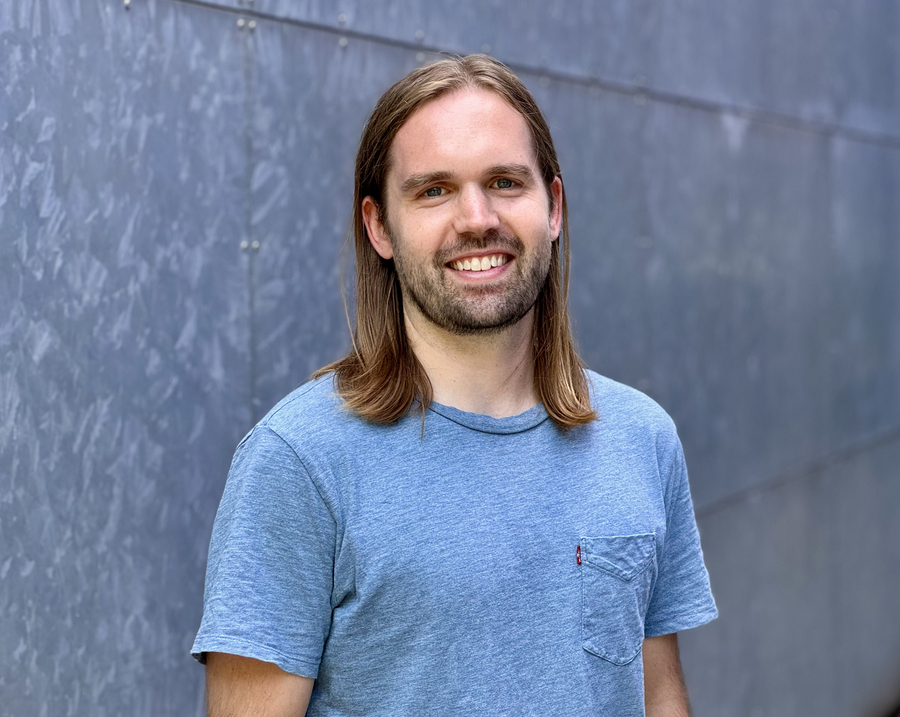
Dr. Ian Seim © Katrin Boes / MPI-CBG
Postdoctoral researcher Ian Seim, in the research group of Stephan Grill at the Max Planck Institute of Molecular Cell Biology and Genetics (MPI-CBG), received a Humboldt Research Fellowship from the Alexander von Humboldt Foundation. In Dresden, Ian will study condensates in the cell cortex of oocytes and embryos of the roundworm C.elegans. During the development of an embryo, one component is especially important: the cell cortex. It is a fine network of hair-like filament structures (called actin) just below the cell membrane, orchestrating cell shape changes, cell movement, and cell division. Within the cortex are droplet-like condensates made up of actin filaments and actin regulators. Just before an unfertilized egg cell becomes an embryo following fertilization, they regulate the formation of the first cortex. Ian Seim will investigate those condensates to identify the molecular mechanisms underpinning the activation of the cortex during development. He will do this using experiments and fluctuation analysis in addition to physical modeling.
Ian obtained his PhD in Bioinformatics and Computational Biology and did one year of postdoctoral research with Amy Gladfelter at the University of North Carolina at Chapel Hill and at Duke University in Durham, North Carolina. Ian, who came to the MPI-CBG one year ago, will now continue his research here for the upcoming two years.
Ian says, “I am excited to continue being a part of the thriving biophysics community in Dresden. The opportunity to explore basic biological questions with rigorous physical approaches is very special, and I've already learned so much during my time here. I'm eager to continue my research and experience life abroad!”
Congratulations, Ian!
The Alexander von Humboldt Foundation supports researchers from all over the world through the Humboldt Research Fellowship. It enables postdoctoral researchers to conduct long-term research in Germany for 6 to 24 months.
https://www.humboldt-foundation.de/en/